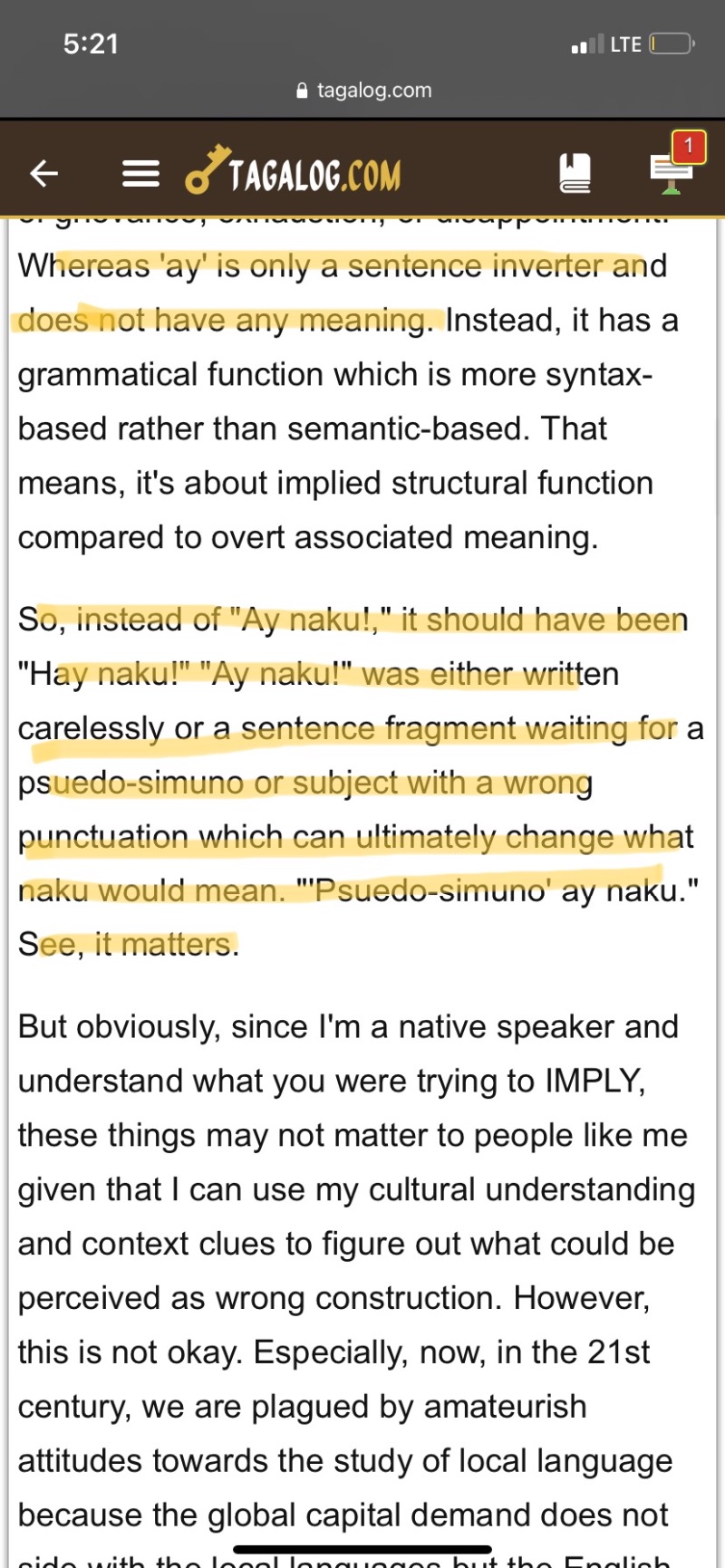AMBoy PinoyTaj Huh...interesting. I'm sure that I learned "Hay naku" from formal sources. But the UP Dictionary does say "Hay" is a variant of Ay. I double checked and the Leo Dictionary also has the definition of "Ay" like UP does (but no "hay" definition). "Hay" is also referred to as a "sigh" noise for Tagalog so...is that a different source than "Ay"? I don't know... Anyway...I don't think you can point to a single reference and claim triumph here, though. ; ) For example, newspapers in the corpus (traditionally more proper) prefer "Hay naku" 3 to 1.
@jkos
I was just pointing out that Ay and Hay are the same as OP claimed they are different.
According to what I could find online : “Hay naku” is the standard spelling however there are books that use “ay naku” Ay Naku
www.amazon.com/dp/97 16301677/ref=cm_sw_r _cp_api_glt_fabc_F32 FKXKJF2928E43N7
Means exactly the same thing and some sources say it’s a shortening of “Ina ko”(naku).
Also since the phrase is already a colloquial shortening, arguing for a grammatical form is weird since it’s a colloquial phrase. In actuality both are grammatically correct since Ay/ hay combine with naku (ina ko) to make
Hay naku / Ay naku.
One could also argue that “Ay” naku should be correct since “ Ay” is the standard form of “Hay” according to the only source that even lists “Hay”.










